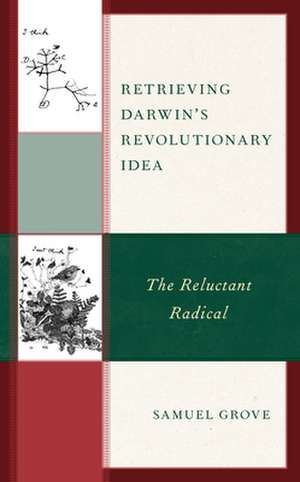Retrieving Darwin's Revolutionary Idea
Autor Samuel Groveen Limba Engleză Hardback – 11 iul 2021
Preț: 679.82 lei
Preț vechi: 931.27 lei
-27% Nou
Puncte Express: 1020
Preț estimativ în valută:
130.08€ • 136.20$ • 107.90£
130.08€ • 136.20$ • 107.90£
Carte tipărită la comandă
Livrare economică 09-23 aprilie
Preluare comenzi: 021 569.72.76
Specificații
ISBN-13: 9781793632494
ISBN-10: 1793632499
Pagini: 298
Dimensiuni: 152 x 229 x 29 mm
Greutate: 0.61 kg
Editura: Rowman & Littlefield
ISBN-10: 1793632499
Pagini: 298
Dimensiuni: 152 x 229 x 29 mm
Greutate: 0.61 kg
Editura: Rowman & Littlefield
Notă biografică
Samuel Grove received his PhD from the University of Nottingham.
Descriere
This study examines the development of Darwin's theory of natural selection. The author analyzes how the theory was rejected by the scientific community and argues that his radical thought anticipated Nietzsche's Godless philosophy, Marx's class-based economics, and Freud's psychological theories of the unconscious.
